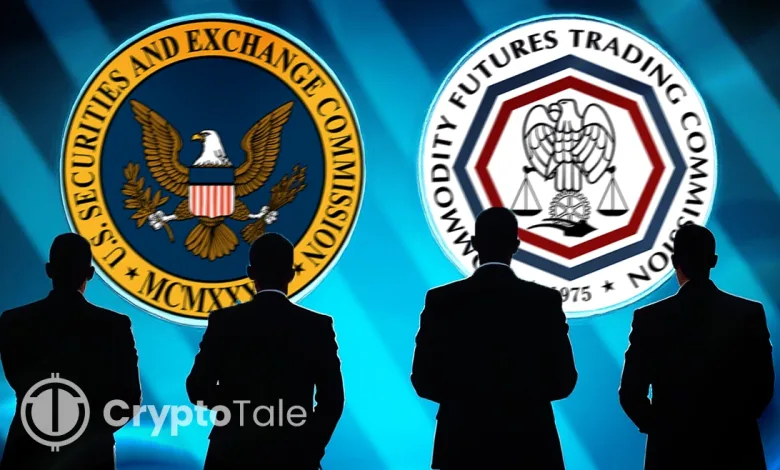SEC and CFTC Roundtable Seeks Clear Crypto Oversight Rules

- SEC and CFTC will meet with crypto firms to discuss clear digital asset oversight.
- Lawmakers weigh the CLARITY Act as regulators push for unified crypto rules.
- Market leaders like Kraken and Nasdaq will join the regulators in these discussions.
The Securities and Exchange Commission (SEC) announced it will host a joint roundtable with the Commodity Futures Trading Commission (CFTC) on Monday. The event aims to coordinate the regulation of digital assets while Congress considers the CLARITY Act.
According to the SEC’s notice, representatives from Kraken, Crypto.com, Kalshi, and Polymarket will join panels on regulatory harmonization. The session will run at a time when lawmakers and market players are urging clear, workable rules.
The discussions come amid significant leadership gaps at the CFTC. This year, all commissioners except Acting Chair Caroline Pham have resigned or departed. To ensure guidance during the event, former CFTC Chair J. Christopher Giancarlo and former commissioner Jill Sommers will moderate panel discussions. Their presence adds experienced voices to a meeting expected to shape future coordination between the two agencies.
The panelists include Jeff Sprecher, CEO of Intercontinental Exchange, Terry Duffy, CEO of CME Group, and Adena Friedman, CEO of Nasdaq. Their participation reflects the blend of traditional finance and crypto platforms now at the centre of the regulatory debate.
Market Pressure and Legislative Debate
The roundtable builds on a September 2 joint statement from the agencies. That statement clarified that registered exchanges can facilitate trading of certain spot commodity products. The clarification signalled momentum toward regulatory clarity for markets bridging traditional and digital assets.
Industry executives have consistently called for unified rules. Kraken, Crypto.com, and other firms at the table represent exchanges handling billions in daily trading volumes. Prediction markets, Kalshi, and Polymarket add another dimension, as their products often sit in grey areas between securities and derivatives regulation.
At the same time, Congress continues to debate the CLARITY Act. The U.S. House of Representatives passed its version in July, but the Senate has yet to vote. The legislation would establish distinct roles for the SEC and CFTC over digital assets. The timing of Monday’s meeting, just days before further Senate deliberations, increases its significance. The urgency raises one pivotal question: can two rival regulators build a coherent framework quickly enough to keep innovation onshore?
Related: SEC Chair Proposes Plan to Ease Crypto Regulations by December
Policy Shifts Under New Leadership
Recent regulatory moves show a shift in posture under the Trump administration. Since January, SEC Chair Paul Atkins and CFTC Acting Chair Caroline Pham have taken steps that benefit the cryptocurrency industry. Both described the joint roundtable as a “long-awaited journey” to strengthen market clarity and competitiveness.
At the SEC, long-standing enforcement actions have been dropped. Investigations into firms like Coinbase, Ripple Labs, and Kraken—some of which had dragged for years—have been closed. In addition, the SEC approved generic listing standards for exchange-traded funds, allowing faster approvals for cryptocurrency ETFs.
The CFTC has taken similar steps. Despite the departure of four of five commissioners this year, the agency appointed crypto company executives to its Global Markets Advisory Committee in September. It has also explored allowing stablecoins and tokenized assets as collateral in derivatives markets. These moves suggest openness to integrating crypto within regulated financial structures.
The SEC and CFTC also issued a joint staff opinion in early September. It stated that existing law does not prevent SEC- or CFTC-registered platforms from facilitating certain spot crypto transactions. This opinion indicated readiness to bring more crypto activity into U.S. regulatory markets.
Still, aligning two distinct legal frameworks remains difficult. Securities law governs investor protections, while commodities law regulates derivatives. Balancing rulemaking authority, enforcement powers, and appeals will require precision. Any final architecture must withstand litigation, political shifts, and rapid technological change.




